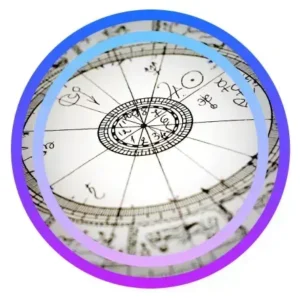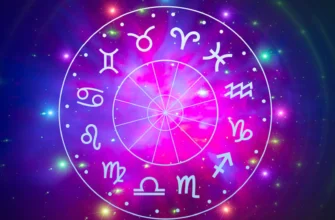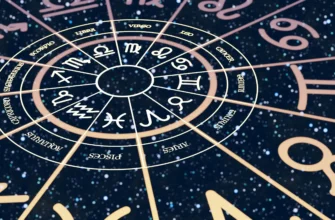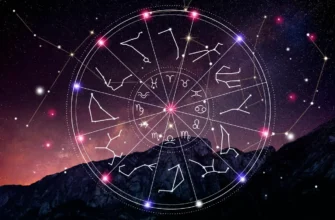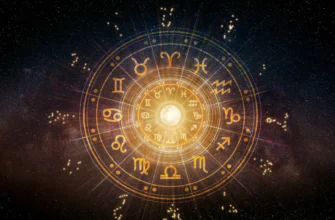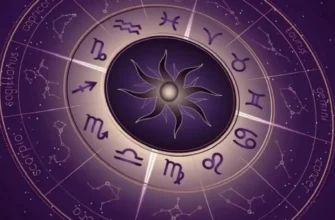When Venus and Mars interact in synastry, a relationship becomes charged with unmistakable chemistry—passion that feels both magnetic and inevitable. These aspects reveal where attraction sparks instantly and how two people respond to each other emotionally and physically. In synastry chart interpretation, Venus shows what we desire, while Mars reflects how we pursue it. Their interaction often explains why some couples feel effortless romantic heat, whether the connection is tender, fiery, or overwhelming.
Through relationship synastry, Venus–Mars aspects show patterns of affection, desire, conflict, and erotic compatibility that shape long-term intimacy. These dynamics are also central in birth chart compatibility, helping partners understand how well their emotional needs align with their sexual rhythms. While harmonious aspects create natural flow, challenging ones produce tension that can feel exciting or destabilizing. Venus–Mars synastry ultimately reveals how two people ignite each other—emotionally, physically, and spiritually.
Venus-Mars aspects in synastry charts create the fundamental romantic and sexual chemistry that determines physical attraction and passion between partners. When analyzing birth chart compatibility through astrology reading, these planetary connections reveal whether couples experience magnetic pull, satisfying intimacy, and the energetic spark necessary for romantic relationships to ignite and sustain over time.
Natal chart analysis of Venus-Mars contacts shows how masculine and feminine energies interact, whether sexual timing aligns, and if partners can satisfy each other’s desires for both romance and physical connection. Understanding these astrological chart dynamics through comprehensive astrology interpretation helps couples recognize their natural compatibility levels and navigate challenges around differing approaches to love, sex, and romantic expression that can either create exciting polarity or frustrating disconnection.
Understanding Venus and Mars in Relationship Chemistry
Venus represents love, romance, beauty, aesthetic preferences, values, pleasure, and the feminine principle in relationships. In synastry analysis, Venus governs how individuals give and receive affection, what they find romantically appealing, their approach to courtship and relationship building, and their capacity for enjoying sensual pleasures. Venus energy is receptive, magnetic, attractive, and seeks harmony, beauty, and pleasurable experiences in partnership.
Mars, conversely, represents desire, sexual energy, assertiveness, action, passion, and the masculine principle in relationships. Mars governs how individuals pursue what they want, express sexual desire, initiate romantic encounters, and assert their needs in partnerships. Mars energy is active, aggressive, initiating, and seeks conquest, excitement, and physical expression of desire.
When Venus aspects Mars in synastry, the fundamental attraction mechanism activates between partners. Venus appreciates Mars’s strength, assertiveness, and sexual energy, while Mars finds Venus’s beauty, receptivity, and romantic nature irresistibly attractive. This creates the classic masculine-feminine polarity that generates romantic and sexual chemistry regardless of the partners’ actual genders.
Generally, the Mars partner embodies more aggressive, active energy, while the Venus partner expresses more passive, receptive energy, though this dynamic depends on other chart aspects and zodiac signs involved. The Mars person typically pursues while Venus attracts and responds. This polarity creates the energetic charge that sparks romantic interest and sexual desire.
Venus-Mars aspects appear frequently in the relationship charts of couples who remain together long-term. This occurs because both planetary energies are necessary for balanced relationships that satisfy both romantic and sexual needs. Even challenging Venus-Mars aspects can create strong magnetism and attraction. These connections are energetic and may be difficult to navigate, but challenging aspects prove better than no connection at all because they create passionate, purposeful energy that keeps relationships vital and engaging.
The specific aspect between Venus and Mars determines how smoothly or turbulently this chemistry manifests. Conjunctions create overwhelming attraction, trines and sextiles facilitate natural harmony, while oppositions and squares generate exciting but challenging dynamics requiring conscious navigation to balance differing approaches to love and sex.
Venus Conjunct Mars in Synastry
Irresistible Physical Attraction
Venus conjunct Mars in synastry indicates very strong physical attraction and sexual chemistry. This aspect promotes rapid development of sexual activity in couples who meet with this connection. In fact, Venus conjunct Mars represents ideal sexual compatibility with strong physical attraction practically guaranteed from first encounter.
When meeting someone whose Venus conjuncts Mars in synastry charts, immediate desire to engage sexually emerges almost instantly. Romantic and sexual attraction can be practically irresistible and overwhelming. The sexual energy between partners will be palpable even to outside observers. This represents a very physical, primal, animalistic aspect that operates at instinctual levels.
In Venus-Mars synastry, the Mars partner often embodies more masculine energy. They possess sexual presence and physicality that the Venus partner admires and finds attractive, while the Venus partner may be more passive with typically feminine, receptive energy. Of course, this synastry aspect doesn’t determine who owns which planet based on gender. Therefore, actual gender has no bearing on the energetic dynamic shared through this aspect.
Generally, the Mars partner proves more active or aggressive in pursuing intimacy, while the Venus partner remains more passive and receptive. This occurs regardless of gender or sexual orientation. However, both individuals experience strong passion to significant degrees with Venus conjunct Mars. This conjunction is extremely physical and usually indicates wonderful sexual chemistry and satisfying intimate life.
Challenges in Long-Term Dynamics
Each partner in relationships with this aspect considers the other the ideal romantic and sexual partner, at least initially. In the long term, however, this aspect can prove quite challenging to navigate successfully. Despite mutual attraction, partners also experience irritation and friction that can lead to numerous passionate arguments followed by equally passionate physical “make-up” sessions.
Venus conjunct Mars is a very powerful aspect, but it won’t necessarily be happy or peaceful. It can cause significant excitement and volatility, both positive and negative. The chemistry in these relationships won’t fade quickly; this proves an excellent aspect for maintaining long-term attraction. However, couples need to learn to communicate and discuss problems more calmly for relationships to survive while preserving passion.
Clear polarity between masculine and feminine energies exists with this aspect. This polarity may or may not please couples, but it operates regardless of conscious preference. Partners will feel these energetic differences operating between them continuously.
Intensity and Volatility
Ultimately, Venus conjunct Mars in synastry means relationship intensity reaches extreme levels. This can manifest positively, negatively, or in combinations of both depending on partners’ maturity and communication skills. The conjunction creates relationships that feel alive, vital, and charged with sexual and romantic energy that never quite settles into comfortable predictability.
Partners must develop healthy outlets for intense energy and learn to channel passion constructively rather than destructively. Physical activity, creative projects, and regular intimate connection help discharge the powerful charge this aspect generates. Without conscious management, the intensity can become overwhelming, leading to dramatic conflicts, jealousy, and possessiveness.
The key to working successfully with Venus conjunct Mars involves honoring the natural polarity while developing mutual respect and clear communication about needs, desires, and boundaries. When partners can express passion appropriately while maintaining individual autonomy, this aspect supports some of the most satisfying romantic and sexual connections possible.
Venus Trine Mars in Synastry
Natural Harmony and Easy Chemistry
With Venus trine Mars in synastry, romantic feelings in relationships are strong and natural. Couples are sexually compatible but also perceive romance as the delightful experience of “being in love” that feels effortless and right. The energy between partners flows very naturally without force or struggle.
Even if relationships don’t last forever, partners will always hold beautiful places for each other in their hearts. Venus trine Mars means relationships can be very harmonious for both parties, both in beginning stages and throughout lifetimes together. These connections don’t require excessive effort to maintain chemistry and attraction.
Couples with this aspect know instinctively how to pleasure each other sexually. Moreover, the physical side of relationships can be just as pleasurable as romantic dimensions. Energy simply flows easily between partners with this aspect. However, as with any Venus-Mars aspect, the Mars partner tends to possess slightly more masculine energy while Venus embodies more feminine receptivity. This proves less pronounced than with other aspects, but subtle shades of masculine-feminine polarity still appear.
Mutual Satisfaction and Compatibility
Venus trine Mars in synastry means the Mars partner’s proactive approach delights the Venus partner. Both partners naturally know how to pleasure each other in bed without extensive communication or instruction. Sexual compatibility feels instinctive and satisfying for both individuals.
Ultimately, Venus trine Mars in synastry indicates romantic relationships will be natural, intimate, and satisfying on multiple levels. Couples enjoy each other sexually while also connecting on romantic and creative wavelengths. If other aspects don’t indicate otherwise, relationships will be very easy, harmonious, and pleasurable throughout their duration.
The trine creates the ideal balance of attraction without excessive volatility, passion without destructive conflict, and sexual chemistry with romantic tenderness. Partners feel they’ve found their perfect match in terms of physical and romantic compatibility, creating relationships that feel both exciting and comfortable simultaneously.

Venus Sextile Mars in Synastry
Although Venus sextile Mars isn’t as strong as the trine, it still indicates strong romantic attraction between lovers. Partners know how to satisfy each other both romantically and sexually. Significant passion exists in these relationships along with a kind of emotional tenderness that softer aspects facilitate.
Venus sextile Mars synastry has tremendous potential for developing into truly fulfilling relationships that balance passion with emotional connection. However, the sextile expresses more subtly than conjunction or trine. Chemistry is present but more implicit and understated rather than overwhelming or obvious.
These relationships will feel very light and easy. Both partners experience attraction to each other and feel comfortable in each other’s company. They may not fit each other’s typical “type,” but this doesn’t bother either person because the connection feels right despite surface-level differences.
Building Sexual Chemistry Over Time
Venus sextile Mars in synastry means good sexual chemistry can develop easily with time and attention. Intensity may not be as strong as with conjunction or trine initially, but over time relationships can evolve into truly satisfying sexual partnerships that deepen with familiarity.
Generally, Venus sextile Mars in synastry charts doesn’t make or break relationships, but this aspect appears more likely in compatibility charts of successful couples. The sextile provides foundation for growth without forcing immediate intensity, allowing relationships to develop naturally at comfortable paces.
Partners should consciously cultivate the potential this aspect offers rather than assuming chemistry will automatically manifest. Taking time to explore each other’s desires, communicating about preferences, and prioritizing intimate connection helps activate the sextile’s full potential for sexual and romantic satisfaction.
Venus Opposite Mars in Synastry
Intense Attraction with Instability
Venus opposite Mars in synastry indicates intense and exciting relationships. Strong romantic and sexual attraction exists between partners. However, this combination can be something of an emotional rollercoaster. Both partners may experience emotional highs and lows that can lead to relationship problems and feelings of instability.
Sometimes relationships feel constantly changing. One moment partners may feel incredible attraction to each other, and the next moment they experience repulsion or disconnection. Often Venus opposite Mars can significantly complicate relationships, making them uncomfortable or difficult, but this aspect also provides opportunities for growth for both parties.
Remember, oppositions in synastry aren’t necessarily bad or problematic. They can create energetic charge through polarity while also indicating opportunities for change and learning through encountering differences. On one hand, this aspect can create very strong romantic and sexual energy almost bordering on obsession. No shortage of desire exists in these relationships!
Jealousy and Possessiveness
If Venus opposite Mars becomes negative, one or both partners may become jealous or display possessive feelings. They may experience rivalry or competition with each other. Relationships can become so unstable and polarized that both partners begin feeling like complete opposites sexually and romantically. If this problem isn’t addressed consciously, it may eventually reach critical breaking points.
However, Venus opposite Mars has positive sides worth developing. Each partner reflects something in the other since their approaches to sex and romance are opposite. If both partners can recognize this mirroring function, they can explain desires to each other and learn to find compromise and middle ground.
Communication as the Key
Communication proves very important with this aspect. Each person must be willing to release preconceptions and move beyond ego in relationships. The opposition creates tension that can either tear partners apart or forge them into something stronger through conscious integration of opposites.
Partners should view differences as complementary rather than incompatible, recognizing that each holds something the other needs to develop wholeness. The Mars person can learn receptivity and romantic refinement from Venus, while Venus can learn assertiveness and direct desire expression from Mars. When both appreciate these lessons, the opposition transforms from obstacle to opportunity.
Venus Square Mars in Synastry
Strong Attraction with Frustrating Disconnection
With Venus square Mars in synastry, emotional and sexual attraction is very strong, but couples also encounter significant misunderstandings and frustrations. Often the Mars partner may seem overly aggressive or insensitive, while the Venus partner feels the Mars partner is only interested in sex rather than romance. The Venus partner usually requires more courtship, emotional connection, and romantic context for sexual intimacy.
The Mars partner may find the Venus partner too complicated, sensitive, or withdrawn. They want more directness and animal instinct, while the Venus partner desires greater sophistication and emotional depth. The Mars person may be attracted to the Venus person’s beauty or appearance but cannot get what they want because when Mars initiates, Venus doesn’t respond as expected.
The Venus partner in these relationships is usually more jealous than the Mars partner, but possessive feelings can be problems for both parties. Early in relationships, this tension is noticeable to outsiders, partly because couples may have heated arguments in public settings.
Unconscious Sexual Energy
Although both parties experience strong attraction in Venus square Mars synastry, timing may be off or approaches fundamentally mismatched. Venus square Mars synastry is almost as energetic as conjunction, but sexual energy remains more unconscious and difficult to access. Couples may struggle to truly unlock and express sexual energy fully, though it always exists beneath the surface.
In fact, relationships can be very tense for both partners. They understand everything could be wonderful but simply cannot get things right despite best efforts. This proves especially frustrating for the Mars partner who feels perpetually unable to satisfy or connect with Venus appropriately.
Sexual life may never be what either partner hoped for or expected. Both experience attraction but never seem to find time for sex or connect when opportunities arise. They struggle to explain to each other what they actually want; needs and desires differ so dramatically that mutual understanding feels impossible to achieve.
Love-Hate Dynamics
Partners may not realize how much they love each other until physically separated, then fight when reunited. Venus square Mars creates love-hate relationship dynamics. Maintaining these relationships long-term is possible but requires extensive communication and conscious effort. Couples need to access difficult-to-reach unconscious energies to find romantic and sexual satisfaction.
Remember, with Venus square Mars, nothing resolves automatically or easily. Resolving these difficulties requires tremendous effort, honest communication, and willingness to understand partner’s completely different approach to love and sex. Therapy, couples counseling, and sexual intimacy coaching can provide valuable support for navigating this challenging but potentially rewarding aspect.
Navigating Venus-Mars Aspects for Relationship Success
Honoring Natural Polarity
All Venus-Mars aspects create some degree of masculine-feminine polarity regardless of partners’ genders or sexual orientations. Honoring this natural polarity while avoiding rigid gender roles or stereotypes helps couples work with these energies constructively. The Mars partner should feel free to initiate and pursue, while the Venus partner should feel comfortable attracting and responding.
However, both partners contain both Venus and Mars energies in their complete natal charts. Healthy relationships allow both individuals to express both sides—sometimes initiating, sometimes receiving, sometimes assertive, sometimes receptive. Flexibility within natural polarity creates the most satisfying dynamics.
Developing Communication Skills
Venus-Mars aspects, particularly challenging ones like squares and oppositions, require excellent communication skills to navigate successfully. Partners must learn to express sexual desires clearly, discuss romantic needs openly, and negotiate differences without shame, blame, or criticism.
Creating safe space for vulnerable conversations about intimacy, pleasure, turn-ons, and turn-offs helps couples bridge gaps between different approaches. Regular check-ins about sexual and romantic satisfaction prevent resentment from building and keep relationships vital and engaging.
Balancing Passion with Stability
Venus-Mars chemistry creates passion and excitement but can also generate volatility and conflict. Couples must learn to balance passionate intensity with stable foundation, channeling sexual energy constructively while maintaining emotional security and trust.
Establishing relationship routines, rituals, and commitments provides stability that allows passion to be expressed safely. When partners trust the relationship’s foundation, they can surrender more fully to sexual and romantic intensity without fear of losing themselves or the partnership.
Maintaining Individual Identity
Strong Venus-Mars aspects can create relationships where partners become overly focused on sexual and romantic dimensions while neglecting individual development. Maintaining separate identities, friendships, interests, and goals helps individuals bring vitality back into relationships rather than becoming stale or codependent.
Time apart allows sexual tension to rebuild naturally, keeping attraction fresh and desire strong. Partners who maintain autonomy while sharing passionate connection create the healthiest expression of Venus-Mars chemistry.


